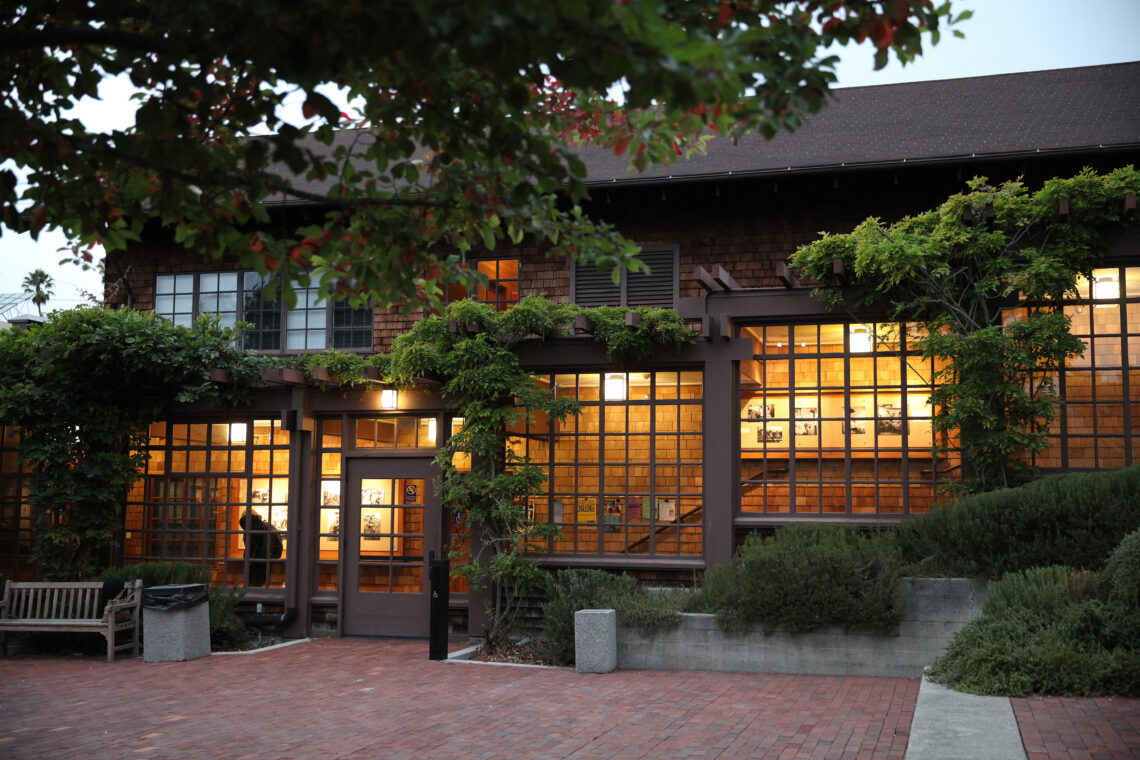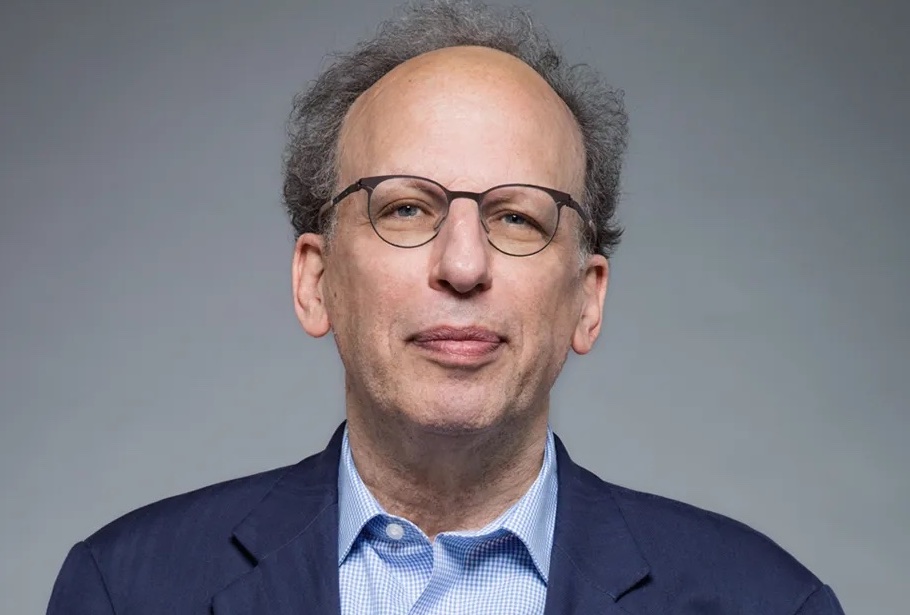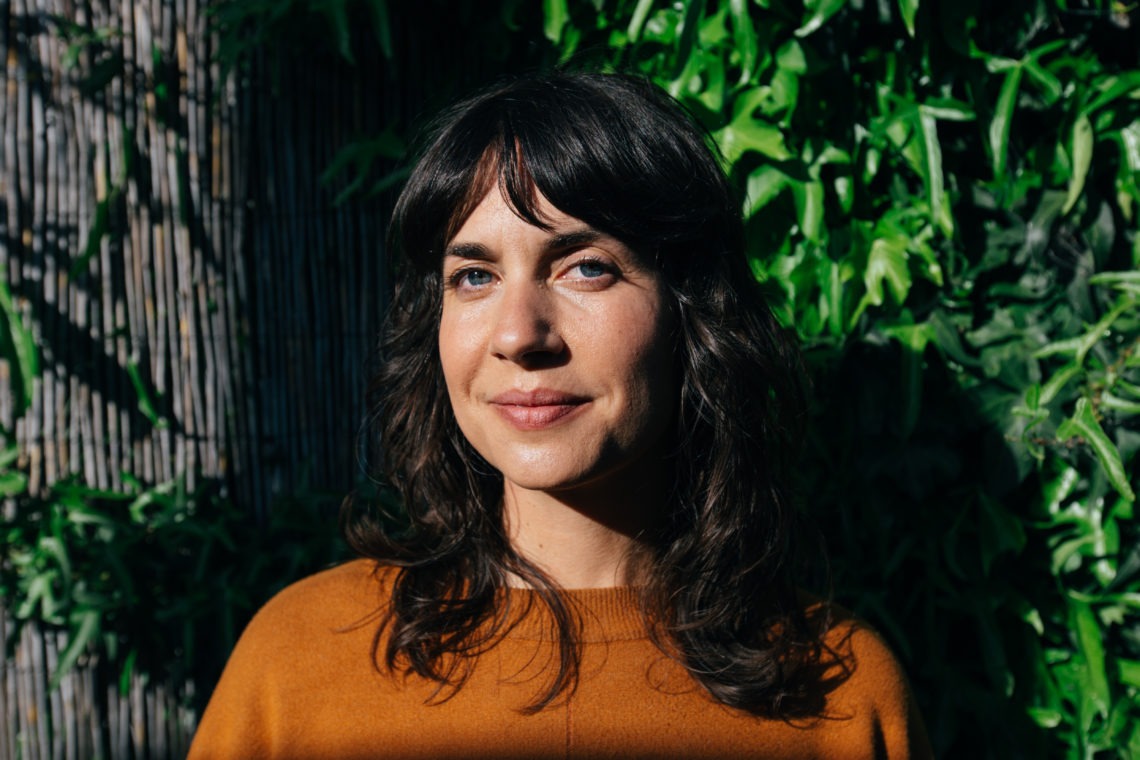
Photo: Clara Mokri (’21)
Documentary filmmaker Katie Bernstein (‘21) has been named the Brian Pollack Fellow in documentary filmmaking at the UC Berkeley Graduate School of Journalism.
The $3,000 fellowship, established in 2018, is awarded annually to a promising 2nd-year documentary film student with a passion for tackling social justice issues and exploring the outdoors, selected by a committee overseen by the prestigious program’s faculty.
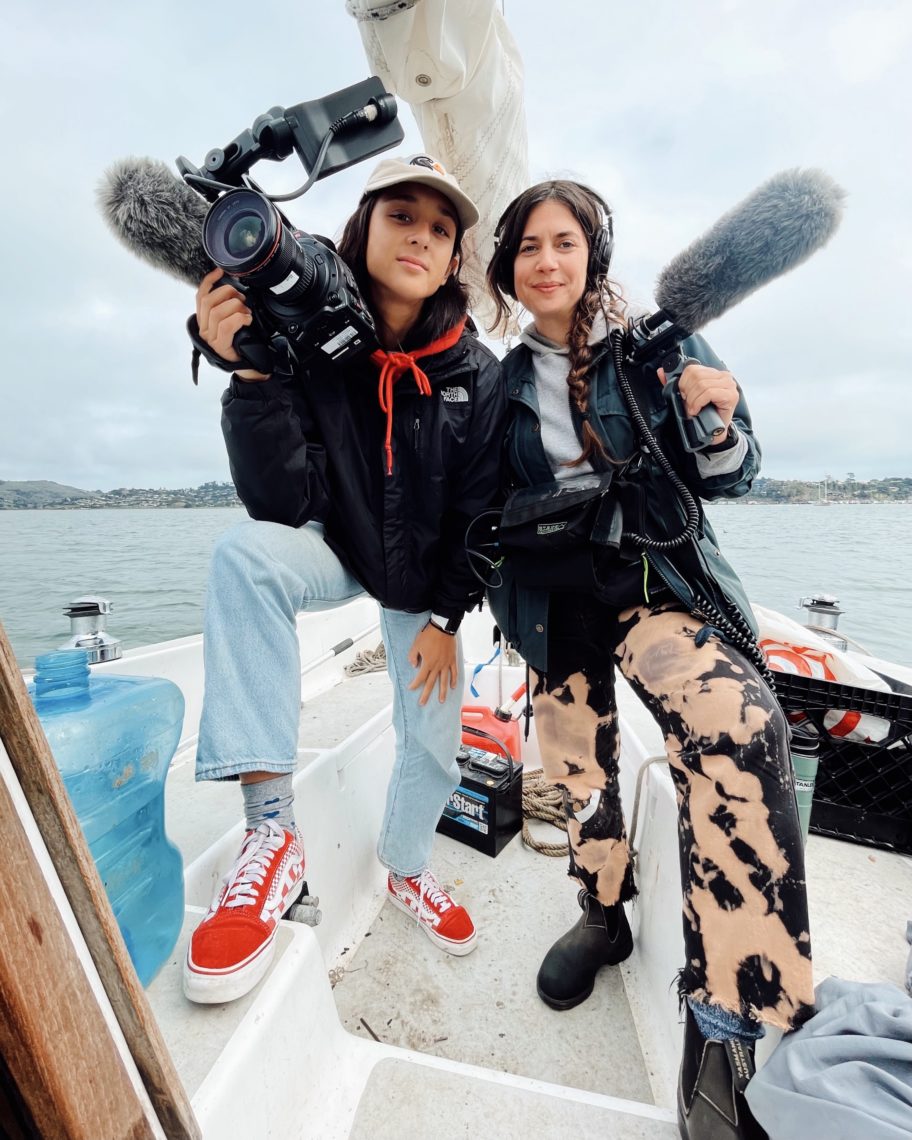
Producer/directors Clara Mokri (left) and Katie Bernstein (’21) shooting their thesis doc out on the water in Sausalito, CA.
The fellowship was established to remember alum Brian Pollack (‘08), who passed away in 2016, leaving behind a community of friends and family who wished to further his interests in documentary filmmaking and exploring the outdoors. Pollack was a producer and documentary filmmaker passionate about shedding light on important issues worldwide. His investigative reporting took him around the U.S. and the world, where he covered topics ranging from the disposal of oil waste in California, the power of voting on political landscapes in swing states, and the sacrifices of American troops in Afghanistan.
“Choosing this year’s Brian Pollack Fellow was difficult, especially with the talented cohort of filmmakers in this year’s class,” said Prof. Jennifer Redfearn, the head of the documentary program. “Katie shares Brian’s passion for shedding light on complex issues and his love of spending time in the wilderness. Katie’s work is exceptional, and her storytelling and editorial skills are impressive from a new filmmaker. I can’t wait to see what she makes next.”
Bernstein is a documentary filmmaker and audio producer interested in issues surrounding inequality, gender, labor, power and social justice. She’s also interested in documenting folk artists, musicians and other people living on the margins, building alternative worlds and imaginative futures.
She has worked at KQED as an on-call audio producer and as an investigative researcher for the California Reporting Project, mining newly-released police misconduct files and use of force records through an internship with Berkeley Journalism’s Investigative Reporting Program (IRP) internship with KQED. She’s also worked as an assistant editor and associate producer on a forthcoming feature documentary about visionary musician and composer Terry Riley directed by Amy Miller. Katie’s audio work has appeared on KQED’s California Report Magazine.
Born in Georgia, and “raised up in the West,” as Bernstein puts it, she received her undergraduate degree in American Studies and English Literature from the University of Texas at Austin.
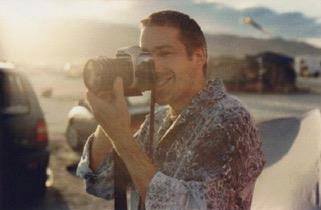
Brian Pollack
“What a true honor to receive this fellowship, named for someone who cared so much for social justice and shared a deep appreciation and reverence for nature,” said Bernstein. “Environmental justice and social justice are so often connected. I’m beyond grateful for the opportunity I’ve had in the doc program under the wise counsel of Jennifer Redfearn, helping me unpack complicated stories in a particularly difficult year for everyone. Winning this award is such a gift, a vote of confidence by people I admire very much. It makes me feel like I’m headed in the right direction.”
Bernstein is currently in post-production on her thesis documentary film with co-director Clara Mokri (‘21) about a community of people who live offshore anchored-out on boats near Sausalito. The film is about their struggle to stay afloat.
What drives you to be a documentary filmmaker?
A documentary film feels like a living thing to me–it unfurls true stories like smoke, opening a window into someone’s life, unwinding a person’s history, and articulating the way it once was, and most often, the way it still is.
When I realized making documentary films was something I could devote myself to doing, I discovered that it was a perfect coalition of the things that I feel called to do: amplifying injustice through truth telling, listening to folks tell the stories of their lives, and deep diving into epic creative collaborations.
I’m driven to be a documentary filmmaker because the world is separated and segregated and a film can be a bridge. I hope that through telling true stories about injustice and trauma–but also about joy and resilience–I can help bring someone into a room they’ve never sat in before, and begin to talk about empathy.
How are you tackling social justice issues in your work?
My thesis film with co-director Clara Mokri (‘21) focuses on a vulnerable community who live on boats anchored out off the coast of Sausalito. The county is cracking down on a long unenforced 72-hour anchoring rule, and crushing boats in the process of implementing its transition plan. Though it’s one of the richest counties in the country, this money definitely doesn’t “trickle down” into many affordable housing options or real support for the low- to no-income folks there. There is a huge economic and social divide, and the film is a conversation about who ‘deserves’ to exist where.
How has exploring the outdoors enriched your life?
My parents wisely shipped me off on a summer backpacking trip when I was a kid, maybe sensing in me a restlessness and seeing some friends of mine who were heading in dark directions. That trip changed my life – it not only connected me for life with the wild lands of the West, but it also showed me who I could be, a person with a deep sense of peace, gratitude, resilience and resourcefulness. Hauling everything I needed with me on my back allowed me to realize how little I actually needed, and installed a self-reliance and can-do confidence I still carry.
I still rely on my outdoor daily walking meditations and now know that camping, biking and hiking regularly is a necessary element of self-care for me. It’s the only time I feel like I can really clear my noisy mind and be present. It’s also moved me to work to try to preserve it–I’m hoping that my next film project will be a climate and environmental justice story.
To augment the scholarship fund created in Brian Pollack’s honor, readers are welcome to click here.

